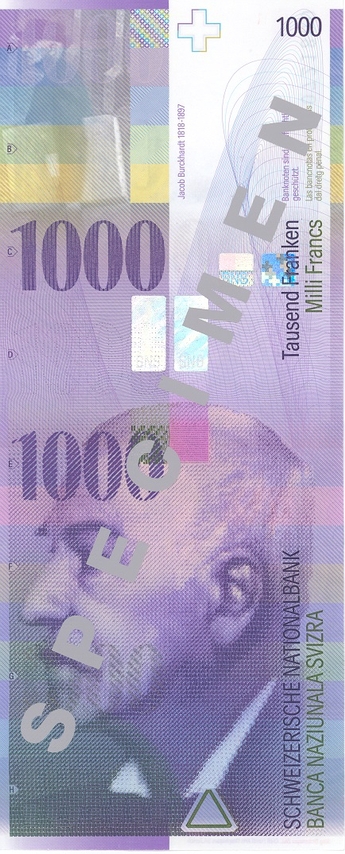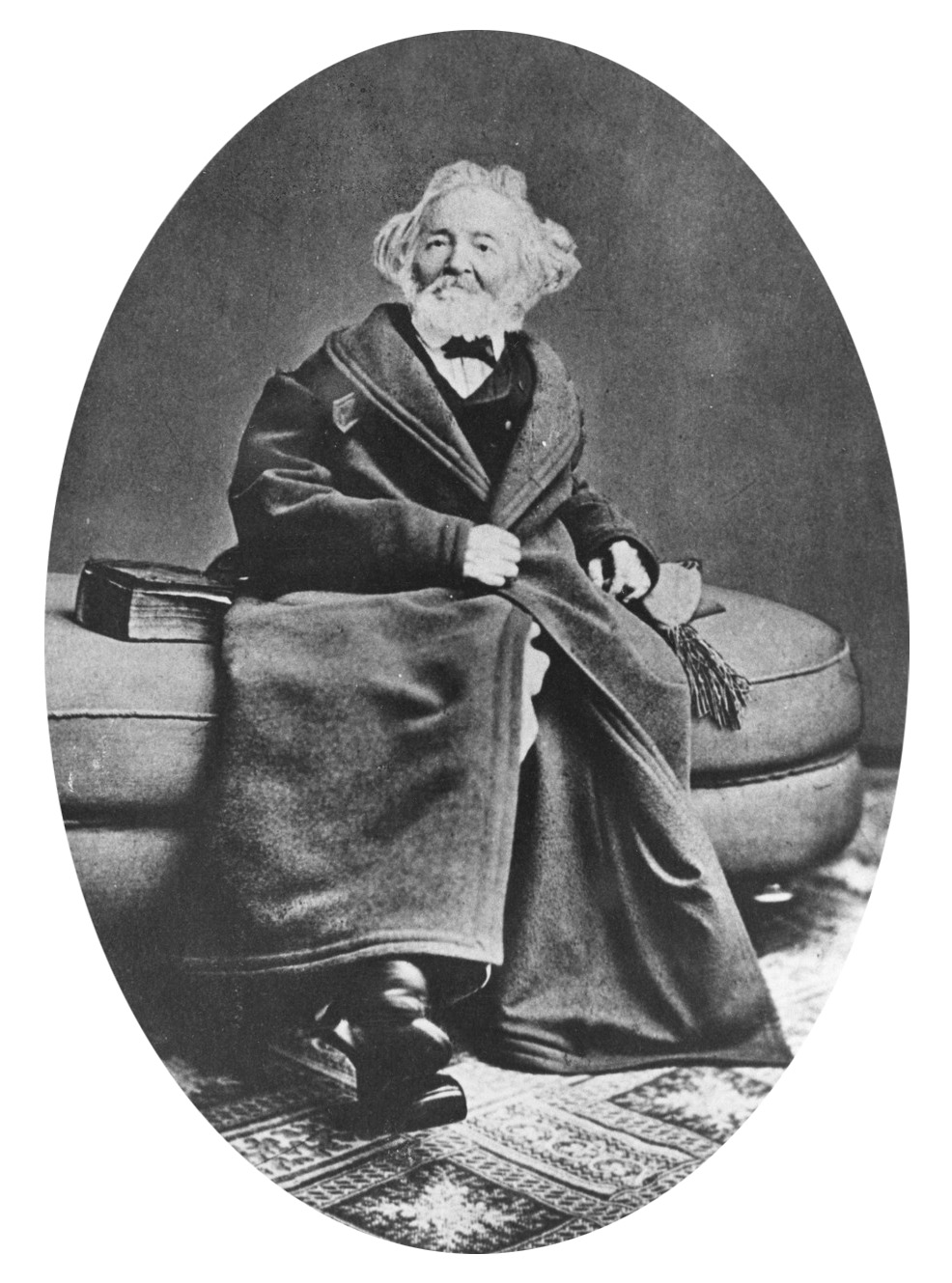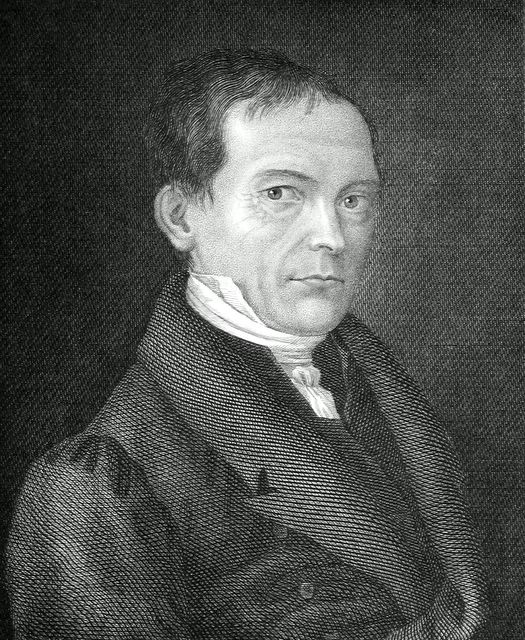|
Jacob Burckhardt
Carl Jacob Christoph Burckhardt (25 May 1818 – 8 August 1897) was a Swiss historian of art and culture and an influential figure in the historiography of both fields. He is known as one of the major progenitors of cultural history. Sigfried Giedion described Burckhardt's achievement in the following terms: "The great discoverer of the age of the Renaissance, he first showed how a period should be treated in its entirety, with regard not only for its painting, sculpture and architecture, but for the social institutions of its daily life as well." His best known work is ''The Civilization of the Renaissance in Italy'' (1860). Life The son of a Protestant clergyman, Burckhardt was born and died in Basel, where he studied theology in the hope of taking holy orders; however, under the influence of Wilhelm Martin Leberecht de Wette, he chose not to become a clergyman. He was a member of the patrician Burckhardt family. He finished his degree in 1839 and went to the Universi ... [...More Info...] [...Related Items...] OR: [Wikipedia] [Google] [Baidu] |
Historiography
Historiography is the study of the methods of historians in developing history as an academic discipline, and by extension is any body of historical work on a particular subject. The historiography of a specific topic covers how historians have studied that topic using particular sources, techniques, and theoretical approaches. Scholars discuss historiography by topic—such as the historiography of the United Kingdom, that of WWII, the British Empire, early Islam, and China—and different approaches and genres, such as political history and social history. Beginning in the nineteenth century, with the development of academic history, there developed a body of historiographic literature. The extent to which historians are influenced by their own groups and loyalties—such as to their nation state—remains a debated question. In the ancient world, chronological annals were produced in civilizations such as ancient Egypt and Mesopotamia. However, the discipline of h ... [...More Info...] [...Related Items...] OR: [Wikipedia] [Google] [Baidu] |
Basel
, french: link=no, Bâlois(e), it, Basilese , neighboring_municipalities= Allschwil (BL), Hégenheim (FR-68), Binningen (BL), Birsfelden (BL), Bottmingen (BL), Huningue (FR-68), Münchenstein (BL), Muttenz (BL), Reinach (BL), Riehen (BS), Saint-Louis (FR-68), Weil am Rhein (DE-BW) , twintowns = Shanghai, Miami Beach , website = www.bs.ch Basel ( , ), also known as Basle ( ),french: Bâle ; it, Basilea ; rm, label=Sutsilvan, Basileia; other rm, Basilea . is a city in northwestern Switzerland on the river Rhine. Basel is Switzerland's third-most-populous city (after Zürich and Geneva) with about 175,000 inhabitants. The official language of Basel is (the Swiss variety of Standard) German, but the main spoken language is the local Basel German dialect. Basel is commonly considered to be the cultural capital of Switzerland and the city is famous for its many museums, including the Kunstmuseum, which is the first collection of art accessible t ... [...More Info...] [...Related Items...] OR: [Wikipedia] [Google] [Baidu] |
19th-century Philosophy
In the 19th century, the philosophers of the 18th-century Enlightenment began to have a dramatic effect on subsequent developments in philosophy. In particular, the works of Immanuel Kant gave rise to a new generation of German philosophers and began to see wider recognition internationally. Also, in a reaction to the Enlightenment, a movement called Romanticism began to develop towards the end of the 18th century. Key ideas that sparked changes in philosophy were the fast progress of science, including evolution, most notably postulated by Charles Darwin and Jean-Baptiste Lamarck, and theories regarding what is today called emergent order, such as the free market of Adam Smith within nation states, or the Marxist approach concerning class warfare between the ruling class and the working class developed by Karl Marx and Friedrich Engels. Pressures for egalitarianism, and more rapid change culminated in a period of revolution and turbulence that would see philosophy change a ... [...More Info...] [...Related Items...] OR: [Wikipedia] [Google] [Baidu] |
Leopold Von Ranke
Leopold von Ranke (; 21 December 1795 – 23 May 1886) was a German historian and a founder of modern source-based history. He was able to implement the seminar teaching method in his classroom and focused on archival research and the analysis of historical documents. Building on the methods of the Göttingen School of History, he was the first to establish a historical seminar. Ranke set the standards for much of later historical writing, introducing such ideas as reliance on primary sources ( empiricism), an emphasis on narrative history and especially international politics ('' Außenpolitik''). He was ennobled in 1865, with the addition of a "von" to his name. Ranke also had a great influence on Western historiography and is considered a symbol of the quality of 19th century German historical studies. Ranke, influenced by Barthold Georg Niebuhr, was very talented in constructing narratives without exceeding the limits of historical evidence. His critics have noted the infl ... [...More Info...] [...Related Items...] OR: [Wikipedia] [Google] [Baidu] |
Liberty Fund Inc
Liberty is the ability to do as one pleases, or a right or immunity enjoyed by prescription or by grant (i.e. privilege). It is a synonym for the word freedom. In modern politics, liberty is understood as the state of being free within society from control or oppressive restrictions imposed by authority on one's way of life, behavior, or political views. In theology, liberty is freedom from the effects of "sin, spiritual servitude, rworldly ties". Sometimes liberty is differentiated from freedom by using the word "freedom" primarily, if not exclusively, to mean the ability to do as one wills and what one has the power to do; and using the word "liberty" to mean the absence of arbitrary restraints, taking into account the rights of all involved. In this sense, the exercise of liberty is subject to capability and limited by the rights of others. Thus liberty entails the responsible use of freedom under the rule of law without depriving anyone else of their freedom. Liberty can b ... [...More Info...] [...Related Items...] OR: [Wikipedia] [Google] [Baidu] |
University Of Berlin
The Humboldt University of Berlin (german: link=no, Humboldt-Universität zu Berlin, abbreviated HU Berlin) is a public research university in the central borough of Mitte in Berlin, Germany. The university was established by Frederick William III on the initiative of Wilhelm von Humboldt, Johann Gottlieb Fichte and Friedrich Daniel Ernst Schleiermacher as the University of Berlin () in 1809, and opened in 1810, making it the oldest of Berlin's four universities. From 1828 until its closure in 1945, it was named Friedrich Wilhelm University (german: link=no, Friedrich-Wilhelms-Universität). During the Cold War, the university found itself in East Berlin and was ''de facto'' split in two when the Free University of Berlin opened in West Berlin. The university received its current name in honour of Alexander and Wilhelm von Humboldt in 1949. The university is divided into nine faculties including its medical school shared with the Freie Universität Berlin. The unive ... [...More Info...] [...Related Items...] OR: [Wikipedia] [Google] [Baidu] |
Burckhardt
Burckhardt, or (de) Bourcard in French, is a family of the Basel patriciate, descended from Christoph (Stoffel) Burckhardt (1490–1578), a merchant in cloth and silk originally from Münstertal, Black Forest, who received Basel citizenship in 1523, and became a member of the Grand Council of Basel-Stadt in 1553. The family was represented in the Grand Council continuously from 1553 until the 20th century. In the 17th century and early 18th century, the family was the most powerful family of the canton of Basel. Branches of the family were based in Nantes and in the Kingdom of Naples from the 18th century, where it was ennobled as ''de Bourcard''. The family's famous members include the traveller and orientalist Johann Ludwig Burckhardt, the influential art historian Jacob Burckhardt and the international President of the Red Cross, Carl Jacob Burckhardt. The surname is derived from the dithematic Germanic given name '' Burkhard'', from ''burg'' "protection" and ''har ... [...More Info...] [...Related Items...] OR: [Wikipedia] [Google] [Baidu] |
Wilhelm Martin Leberecht De Wette
Wilhelm Martin Leberecht de Wette (12 January 1780 – 16 June 1849) was a German theologian and biblical scholar. Life and education Wilhelm Martin Leberecht de Wette was born 12 January 1780 in Ulla (now part of the municipality of Nohra), Thuringia, where his father was a pastor. As a boy, he was sent to the gymnasium at the nearby city of Weimar. Here he was much influenced by Johann Gottfried von Herder, who frequently examined at the school. In 1799, de Wette entered the University of Jena to study theology, his principal teachers being J. J. Griesbach and H. E. G. Paulus. By the time he submitted his dissertation in September 1804, he was in regular contact at Jena with Jakob Friedrich Fries and Karl David Ilgen, who perhaps led him to his contact with Johann Severin Vater, a scholar whose work he both admired and, in some respects, duplicated independently. He became a ''Privatdozent'' at Jena after completing his doctorate degree. In 1807, de Wette became a professor ... [...More Info...] [...Related Items...] OR: [Wikipedia] [Google] [Baidu] |
Clergyman
Clergy are formal leaders within established religions. Their roles and functions vary in different religious traditions, but usually involve presiding over specific rituals and teaching their religion's doctrines and practices. Some of the terms used for individual clergy are clergyman, clergywoman, clergyperson, churchman, and cleric, while clerk in holy orders has a long history but is rarely used. In Christianity, the specific names and roles of the clergy vary by Christian denomination, denomination and there is a wide range of formal and informal clergy positions, including deacons, Elder (Christianity), elders, priests, bishops, preachers, pastors, presbyters, Minister (Christianity), ministers, and the pope. In Islam, a religious leader is often known formally or informally as an imam, caliph, qadi, mufti, mullah, muezzin, or ayatollah. In the Judaism, Jewish tradition, a religious leader is often a rabbi (teacher) or hazzan (cantor). Etymology The word ''cleric ... [...More Info...] [...Related Items...] OR: [Wikipedia] [Google] [Baidu] |
Protestant
Protestantism is a Christian denomination, branch of Christianity that follows the theological tenets of the Reformation, Protestant Reformation, a movement that began seeking to reform the Catholic Church from within in the 16th century against what its followers perceived to be growing Criticism of the Catholic Church, errors, abuses, and discrepancies within it. Protestantism emphasizes the Christian believer's justification by God in faith alone (') rather than by a combination of faith with good works as in Catholicism; the teaching that Salvation in Christianity, salvation comes by Grace in Christianity, divine grace or "unmerited favor" only ('); the Universal priesthood, priesthood of all faithful believers in the Church; and the ''sola scriptura'' ("scripture alone") that posits the Bible as the sole infallible source of authority for Christian faith and practice. Most Protestants, with the exception of Anglo-Papalism, reject the Catholic doctrine of papal supremacy, ... [...More Info...] [...Related Items...] OR: [Wikipedia] [Google] [Baidu] |
Renaissance
The Renaissance ( , ) , from , with the same meanings. is a period in European history marking the transition from the Middle Ages to modernity and covering the 15th and 16th centuries, characterized by an effort to revive and surpass ideas and achievements of classical antiquity. It occurred after the Crisis of the Late Middle Ages and was associated with great social change. In addition to the standard periodization, proponents of a "long Renaissance" may put its beginning in the 14th century and its end in the 17th century. The traditional view focuses more on the early modern aspects of the Renaissance and argues that it was a break from the past, but many historians today focus more on its medieval aspects and argue that it was an extension of the Middle Ages. However, the beginnings of the period – the early Renaissance of the 15th century and the Italian Proto-Renaissance from around 1250 or 1300 – overlap considerably with the Late Middle Ages, conventi ... [...More Info...] [...Related Items...] OR: [Wikipedia] [Google] [Baidu] |










